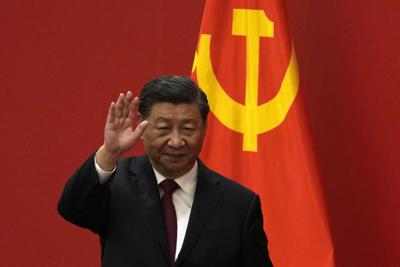A federal grand jury returned a superseding indictment today charging Linwei Ding, also known as Leon Ding, 38, with seven counts of economic espionage and seven counts of theft of trade secrets in connection with an alleged plan to steal from Google proprietary information related to artificial intelligence technology.
Ding was originally indicted in March 2024 on four counts of theft of trade secrets.
The superseding indictment returned today describes seven categories of trade secrets stolen by Ding and charges Ding with seven counts of economic espionage and seven counts of theft of trade secrets.
According to the superseding indictment, Google hired Ding as a software engineer in 2019. Between approximately May 2022 and May 2023, Ding uploaded over 1,000 unique files containing Google confidential information from Google’s network to his personal Google Cloud account, including the trade secrets alleged in the superseding indictment.
While Google employed Ding, he secretly affiliated himself with two China-based technology companies.
Around June 2022, Ding was in discussions to be the Chief Technology Officer for an early-stage technology company based in the PRC. By May 2023, Ding had founded his own technology company focused on AI and machine learning in the PRC and was acting as the company’s CEO.
The superseding indictment alleges that Ding intended to benefit the PRC government by stealing trade secrets from Google. Ding allegedly stole technology relating to the hardware infrastructure and software platform that allows Google’s supercomputing data centre to train and serve large AI models.
The trade secrets contain detailed information about the architecture and functionality of Google’s Tensor Processing Unit chips and systems and Google’s Graphics Processing Unit systems, the software that allows the chips to communicate and execute tasks, and the software that orchestrates thousands of chips into a supercomputer capable of training and executing cutting-edge AI workloads.
The trade secrets also pertain to Google’s custom-designed SmartNIC, a type of network interface card used to enhance Google’s GPU, high performance, and cloud networking products.
As alleged, Ding circulated a PowerPoint presentation to employees of his technology company, citing PRC national policies that encouraged the development of the domestic AI industry. He also created a PowerPoint presentation containing an application to a PRC talent program based in Shanghai.
The superseding indictment describes how PRC-sponsored talent programs incentivize individuals engaged in research and development outside the PRC to transmit that knowledge and research to the PRC in exchange for salaries, research funds, lab space, or other incentives.
Ding’s application for the talent program stated that his company’s product “will help China to have computing power infrastructure capabilities that are on par with the international level.”
An indictment merely alleges that crimes have been committed, and all defendants are presumed innocent until proven guilty beyond a reasonable doubt. If convicted, the defendant faces a maximum sentence of 10 years in prison for each count under 18 U.S.C. § 1832 and a maximum of 15 years in prison for each count under 18 U.S.C § 1831.




